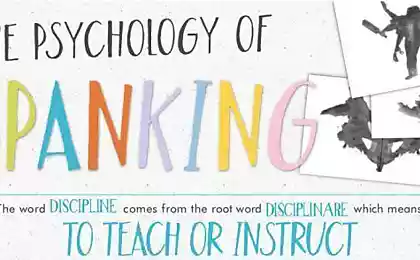268
Why even good habits can backfire

Sometimes, in the quest to become better, we become so fixated on good habits that they begin to hurt us. The paradox of modern self-development is that even the most useful practices can become a source of stress and destruction.
When virtue becomes vice
Marcus Aurelius once said that the grantor lies in the golden middle. Modern science confirms the wisdom of the Roman emperor. Studies show that people who are overly addicted to healthy habits often suffer from elevated cortisol levels and symptoms similar to obsessive-compulsive disorder.
Take Jessica, a 32-year-old marketer from San Francisco. She started with a simple goal of running 5 kilometers three times a week. A year later, she could not miss a day without training, even when she was sick. Her family life was collapsing and her joints required medical intervention. A good habit has become an obsession.
Red flags of addiction to good habits: Guilt when skipping, ignoring physical signals from the body, sacrificing social connections for habit, obsessive thoughts about performing a ritual.
The neurobiology of obsession
When we perform pleasant activities, the brain releases dopamine, a neurotransmitter of pleasure. But there is a nuance: dopamine is released not during the action itself, but in anticipation of the reward. Over time, the brain requires more stimulation to produce the same effect.
535262
Dr. Anna Lembke of Stanford University in her work “Dopamine Nation” explains how any pleasant activity can trigger the mechanism of addiction. Even meditation or reading books can become compulsive if we use them to avoid unpleasant emotions.
Mechanism of formation of obsession:
- The primary pleasure of a useful habit
- Formation of neural reward pathways
- Tolerance – More needs to be done
- Compulsive repetition despite negative consequences
A.D. syndrome in a world of habits
Perfectionists are particularly vulnerable to the tyranny of good habits. They turn useful practices into rigid rules with no room for error. Psychologist Brene Brown distinguishes between a healthy pursuit of perfection and destructive perfectionism.
Healthy pursuit focuses on process and growth. Destructive perfectionism requires flawless results and punishes any deviations. When the morning run becomes not a source of energy, but a commitment to the inner tyrant, the problem is there.
Social pressure and the cult of productivity
Modern society creates a cult of productivity, where the value of a person is measured by the number of good habits. Social media amplifies this effect: people demonstrate their success in fitness, meditation, reading, creating the illusion that everyone else is living a perfect life.

A University of Pennsylvania study found that people who actively use apps to track habits are 40% more likely to experience anxiety about their productivity. The paradox is that tools designed to improve life can make life more complex.
Signs of a healthy habit: Flexibility in performance, improvement of general well-being, compatibility with other areas of life, the ability to adapt to circumstances.
Physiological consequences of excess
Even the most useful habits can cause physical harm if you overdo it. Orthorexia, an obsessive desire for a healthy diet, can lead to nutritional deficiencies and social isolation. Excessive physical activity causes overtraining syndrome, decreased immunity and chronic fatigue.
Dr. John Raity, author of The Spark, warns that even meditation can be a problem. Some people use meditation practices to avoid reality, turning the mindfulness tool into a form of psychological flight.
The impact
When good habits become compulsive, they often produce a return effect. A person either completely abandons a useful practice due to burnout, or falls to the opposite extreme. The story of Tom, who, after a year of extremely healthy lifestyle, spent three months in “everything is possible”, is typical for many.
Strategies to prevent addiction to good habits:
- The 80/20 Rule: Aim for a habit 80% of the time
- Built-in "rest days" from habit
- Focus on internal motivation, not external metrics
- Regular reassessment of objectives and methods
The Way to a Healthy Balance
The Japanese concept of hara hati bu teaches you to stop when your stomach is 80% full. The same principle applies to habits. Perfect execution is 80% often better than obsessive 100%.
Psychologist Kelly McGonigal suggests the concept of “benevolent self-compassion.” Instead of blaming yourself for missing a workout or eating a cake, treat yourself like a good friend with understanding and support.
Practical recommendations:
- Ask yourself, Does this habit serve my purpose or control me? ?
- Enter "flexibility days" - 1-2 days a week without strict rules
- Measure progress in the long run, not daily
- Pay attention to your emotional state, not just your actions
The art of adaptability
The best habits are those that adapt to life’s circumstances. Instead of a hard 60-minute workout, you can have a flexible system: a full workout on ideal days, a 15-minute walk on busy days, and a full rest during stressful periods.
Studies show that people with a flexible approach to habits show better long-term outcomes and higher levels of life satisfaction compared to those who follow strict rules.
Conclusion: The Wisdom of Moderation
Good habits should improve life, not become its jailers. The key to long-term success lies not in perfect execution, but in a wise balance between striving for the best and embracing human imperfection. Remember, you are more than the sum of your habits, and your value is not determined by the number of steps you take or the pages you read.
Glossary
dopamine
A neurotransmitter responsible for feelings of pleasure and motivation. Participates in the formation of addictions and habits.
cortisol
Stress hormone secreted by the adrenal glands. Chronicly elevated levels lead to health problems.
orthorexia
Obsessive desire for healthy eating, which can harm physical and mental health.
Perfectionism
Striving for perfection, which can be both a motivating factor and a source of stress and anxiety.
Overtraining syndrome
A state of physical and emotional exhaustion that occurs with excessive physical exertion without sufficient recovery.
Hara hati bu
Japanese practice of stopping eating at 80% satiety. It is used as a philosophy of moderation in various spheres of life.
What causes loss of motivation and how to deal with it
Secrets of choosing a home coffee station: from beginner to barista























